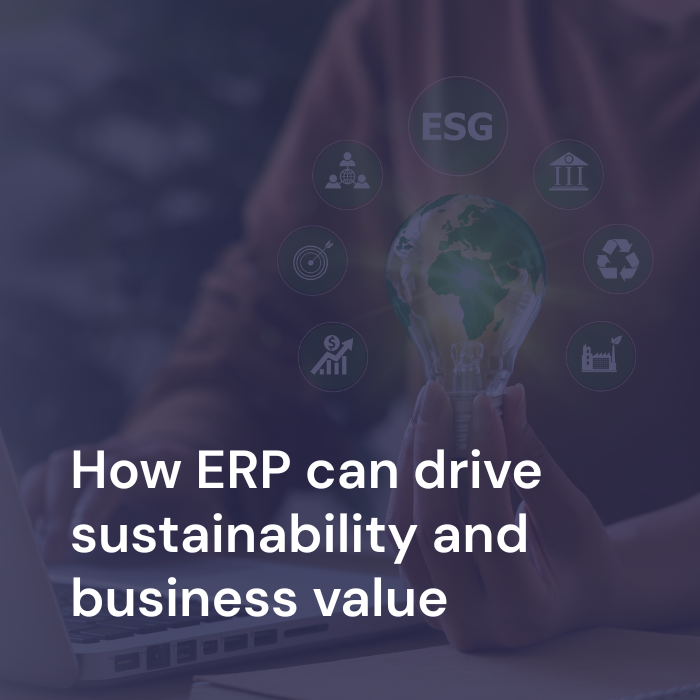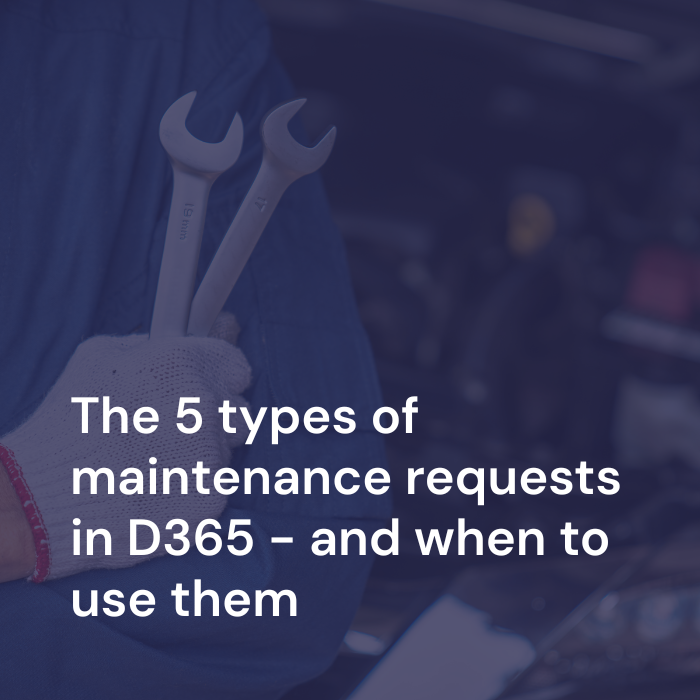
How ERP can drive sustainability and business value
Sustainability isn’t just a global priority—it’s a business one. With the right ERP system, companies can reduce their environmental impact, meet rising regulatory demands, and unlock new efficiencies. Here’s how modern ERP platforms—especially Microsoft Dynamics 365—are helping businesses do just that.
Sustainability in business: more than just a buzzword
Many organizations today have set environmental, social and governance (ESG) goals and commitments, driven by purpose, customer expectations, and rapidly emerging regulatory requirements. However, making the transition from ambition to actionable steps is an enormous challenge, not helped by the fact that for many companies, the data and tools to track and act on sustainability goals remain siloed and underutilized.
According to a recent IBM study on ESG and data, 41% of global executives say inadequate data is the biggest barrier to ESG progress, followed by regulatory barriers (39%), inconsistent standards (37%), and inadequate skills (36%).
As consumers, stakeholders, and regulators continue to demand measurable and transparent sustainability performance, organizations must overcome their data challenges if they want to remain competitive.
The message is clear: sustainability must be managed with the same rigor as financial performance. That requires reliable data, cross-functional integration, and transparent reporting. And for most businesses, the best place to start is with their ERP system.
ERP—the data backbone of the organization—connects every major process, from finance to operations to supply chain. It can provide the transparency, control, and alignment needed to turn ESG goals into outcomes, and to navigate the growing complexity of sustainability reporting.
Boards, investors, customers, and regulators are watching closely. But beyond compliance, there’s opportunity: organizations that lead on sustainability often gain competitive advantage, unlock innovation, and future-proof their operations.
Five ways ERP supports sustainability
ERP platforms integrate data across departments, creating a real-time, single source of truth. But beyond driving operational efficiency, they also support sustainability in five powerful ways:
1. Reducing waste in manufacturing and supply chains
Modern ERP systems help organizations manage inventory, production, and logistics with far greater precision. Real-time demand forecasting and supply chain visibility enable:
- Reduced overproduction and excess inventory
- Smarter logistics planning, cutting down transport emissions
- Less material waste through optimized planning
According to a 2023 IBM study on ERP and sustainability, companies that embed sustainability into ERP are 94% more likely to succeed in manufacturing sustainability initiatives.
This kind of control not only lowers costs—it actively reduces the environmental burden across the value chain.
2. Optimizing resource and energy usage
Energy consumption and resource usage can be tracked, monitored, and improved through ERP insights. This includes:
- Real-time monitoring of electricity, gas, and water consumption
- Machine usage analytics for smarter maintenance scheduling
- Energy-efficient production planning
- Monitoring and reduction of Scope 1 and 2 emissions
- Improved reporting and benchmarking
ERP dashboards make these metrics visible to key decision-makers—so environmental impact becomes part of everyday operations.
3. Driving sustainable procurement and transparent supply chains
ERP-enabled procurement allows organizations to:
- Evaluate and score vendors based on ESG criteria/sustainability performance
- Track compliance with sustainability standards
- Create traceability from source to delivery
These systems help align procurement with corporate sustainability goals, reducing risk and improving accountability. Businesses can track not only cost and lead time but also ethical sourcing and carbon footprint across their supply base.
4. Digitizing workflows to cut paper and manual processes
Going paperless is one of the simplest—and most impactful—steps companies can take. ERPs make this shift seamless.
By shifting approvals, documentation, and training online, ERP systems help companies:
- Cut paper usage and physical storage
- Reduce reliance on in-person processes
- Increase adoption of remote-friendly operations
Document management modules enable the electronic handling, storage, and sharing of documents. Invoicing, payroll, and reporting can be automated electronically, further reducing the paper trail. This paperless shift not only supports environmental sustainability but also enhances operational efficiency.
5. Enabling better reporting and compliance
Sustainability regulations are expanding rapidly and requiring increasingly detailed reporting. ERP systems can help businesses stay ahead by providing:
- Centralized tracking of environmental KPIs (such as resource usage)
- Auditable sustainability reports
- Alignment with global ESG standards like CSRD and GRI
ERP provides the transparency needed to meet stakeholder expectations—and the control to continuously improve.
Sprint365: ERP implementation with a sustainable edge
At Sprint365, we go beyond standard ERP rollouts. Our pre-configured Dynamics 365 solutions and Productivity Toolbox are designed to accelerate adoption, reduce complexity, and cut resource waste from day one.
We help customers get live faster—with fewer surprises, less manual effort, and more value from their systems. And that includes supporting sustainability goals with tools and data that make a difference.
Want to make your ERP a driver of sustainability?
Let’s talk. Book a meeting to see how Sprint365 can help you reduce emissions, streamline operations, and build a future-ready business.
Sources:
The ESG Data Conundrum, IBM, 2023 Report
ERP in the sustainable organization, IBM, 2023 Report



